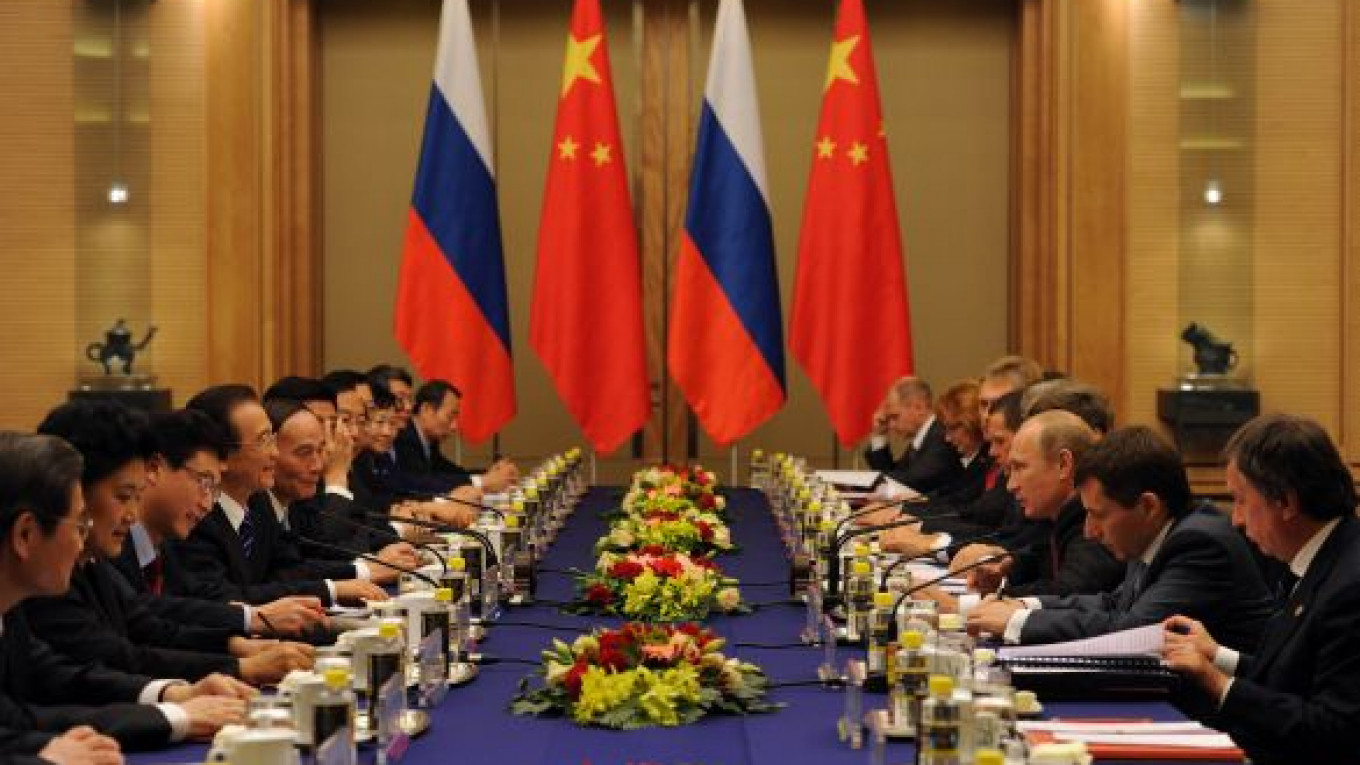BEIJING — Russia said Tuesday that it was nearing the final stage of a huge gas export deal with China, in what would be a landmark trade agreement between the neighbors.
"We are nearing the final stage of work on gas supplies," Prime Minister Vladimir Putin told reporters after talks with Chinese Premier Wen Jiabao.
Putin is hoping his two-day visit will broaden trade with China.
"Our goal is to diversify our economic ties," Putin told reporters. "I think that everyone will agree that, compared with the known difficulties in the global economy, this aspect of the Russian-Chinese relationship [growing trade] has a stabilizing impact."
An agreement on Russian gas deliveries to the world's second-largest energy consumer, China, would boost Moscow's efforts to reduce its export dependency on the European market. But Moscow and Beijing have haggled for five years over the commercial settings for the deal.
Russia aims to supply China with 68 billion cubic meters of gas — compared with up to 155 bcm it set to supply Europe this year — annually over 30 years from 2015, but differences over pricing have been a major stumbling block after an outline agreement was announced back in 2006.
Earlier, Deputy Prime Minister Igor Sechin said there had been "significant" progress in the gas talks with Chinese Vice Premier Wang Qishan.
Yet despite the upbeat talk, there are plenty of stumbling blocks that could hold back a final agreement.
"Russia wants to link the gas price to oil prices the way it does in Europe, but China considers that price too high. So unless Russia was willing to move away from an index-linked deal, it would be hard for any agreements to be made," said Gordon Kwan, head of regional energy research for Mirae Asset Securities.
The price gap the two sides need to bridge remains about $100 per 1,000 cubic meters, which is some 30 percent of Gazprom's average gas price to Europe this year, he said.
China "has a very strong upper hand in these negotiations, and there's no reason why it needs to agree to an oil-linked price," Kwan added.
Sechin's comments also hinted that the gas deal must pass plenty of negotiating hoops before it becomes a reality.
"We have agreed that within the next two weeks we will outline a road map, which will include a demand analysis, sources of supplies, the place of Gazprom in the structure of supplies," he told reporters.
Sechin said the two sides had nonetheless resolved their differences over China's debts for Russian oil exports.
On Jan. 1, Russia started a 300,000-barrel-per-day oil supply to China via the first stage of the East Siberia-Pacific Ocean pipeline. But earlier this year, Russia has said China underpaid it tens of millions of dollars due to a dispute on tariffs.
A Message from The Moscow Times:
Dear readers,
We are facing unprecedented challenges. Russia's Prosecutor General's Office has designated The Moscow Times as an "undesirable" organization, criminalizing our work and putting our staff at risk of prosecution. This follows our earlier unjust labeling as a "foreign agent."
These actions are direct attempts to silence independent journalism in Russia. The authorities claim our work "discredits the decisions of the Russian leadership." We see things differently: we strive to provide accurate, unbiased reporting on Russia.
We, the journalists of The Moscow Times, refuse to be silenced. But to continue our work, we need your help.
Your support, no matter how small, makes a world of difference. If you can, please support us monthly starting from just $2. It's quick to set up, and every contribution makes a significant impact.
By supporting The Moscow Times, you're defending open, independent journalism in the face of repression. Thank you for standing with us.
Remind me later.






